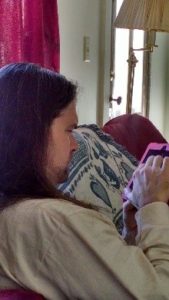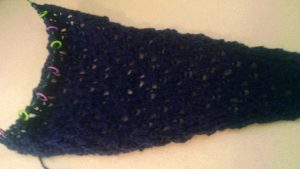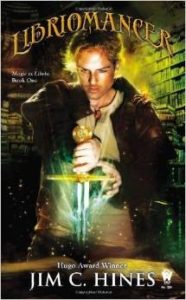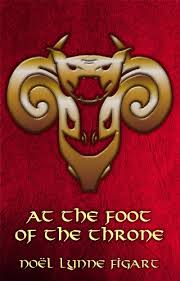I’ve often talked about love not being an emotion, but a set of behaviors, a commitment, and a way of interacting. That’s true. Sure, sure, emotions are included in that, but it is not the sum total of what love is.
One thing I’ve often pondered, chewed on and driven myself crazy with is the idea that happiness is an emotion and there’s something wrong because I don’t often feel it.
What if happiness (as in a state of being with one’s life) is like love, and actually an emotion, but a state of being over time that has to do less with actual emotion and more to do with life and choices in relationship to it?
(I know this is weird, but stay with me here. I just asked this question about thirty seconds ago when my To-do Beepy Reminder went off to tell me it was time to get some writing done. This is not a planned-out essay.)
There is some background to this. I am always looking at systems for things. It’s just kind of the way I am built. If there’s an underlying logic or method to doing or being, I’m going to run in that direction. It’s just the way I am, and in general, I like it that way.
So, I was feeling kind of upset and depressed and frustrated about things a few months ago when I downloaded a mood monitoring app for my smartphone. (How Are You mood tracker. You can get it on Google Play, I know).
You’re asked to rate your mood on several criteria — how determined and ready to act you feel, how frustrated you feel, etc. You get a beepy reminder to do this three or so times a day, and the results were kind of interesting to me.
No, more than interesting. They were an uncomfortable revelation.
My mood was pretty consistently above 70% on the scale as an average. Oh, sure, it dipped from time to time, but overall, my mood as I was self-rating in the moment was generally pretty damn high. You’re asked if you’re feeling: Alert, Hostile, Friendly, Determined, Active, and a couple of other things I forget. It’s nine different questions, anyway. You have this circle slider where you drag to estimate how much of each of the different states of being you’re feeling at that moment.
I just took the test and it had my mood at 86%. Now, I’ve been pondering Life, the Universe and Everything most of the morning, and it’s a gray day, so I wouldn’t have said I’m all that happy at the moment.
But, maybe I’m tagging the wrong state of being as happy. I mean, the test could be a load of crap, but I’m wondering if my point of view is really what’s been messed up. I’m wondering if I’m mapping joyful to happy, and happy is a quieter thing. Seriously. To me, happy is being on a boat on the ocean or being at the beach or swimming or finishing writing a novel or teaching a class or knitting something or being with my family.
Maybe those things are better than happy. Maybe those things are joyful. Which is cool, ’cause I get a lot of joyful stuff in my life, and that’s pretty awesome.
But if happy is really more about some ratio of Attentiveness, Determination, Active, and Inspired over Upset, Hostile, Nervous, Afraid, Ashamed (yes, I looked it up rather than guessed), Determination, Attentiveness and Inspiration are almost always pretty strongly present in my mental landscape. They’re gonna be there whether or not I am feeling what *I* would call a positive mood in the moment. That means, I’m going to be rated as “happy” by this scale more often than not.
While I’d never really considered myself a particularly positive person, I’m beginning to wonder. Maybe I kinda am, and while I’m moody as hell, that may have less to do with my overall state of being than once I thought. Maybe it’s like waves, you know? They knock you down, or you dive under them, but if you know how to swim, and pay attention to the push and pull of the water, you generally can cope and even have fun with them.
Maybe it’s like my view of love, and happiness isn’t entirely an emotion, but a amalgam of many sometimes conflicting things, just like swimming in the ocean can be.
Whether or not it’s true, it kind of makes me feel better about Life, the Universe and Everything.





